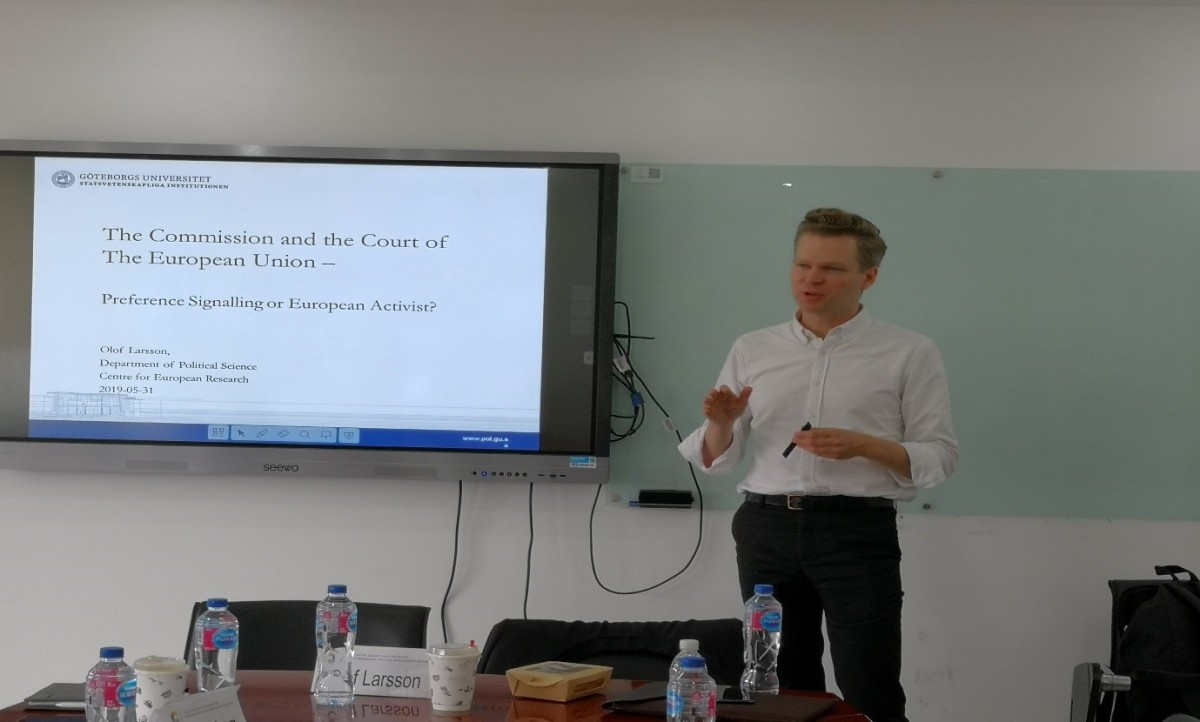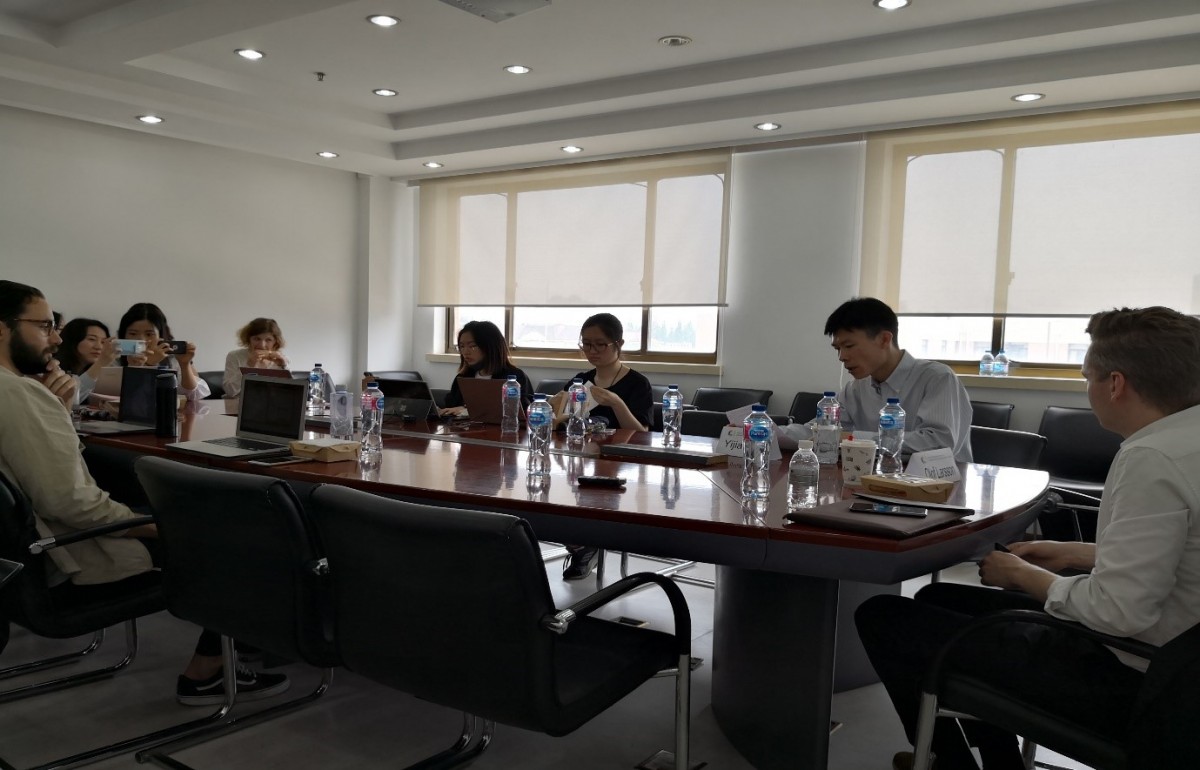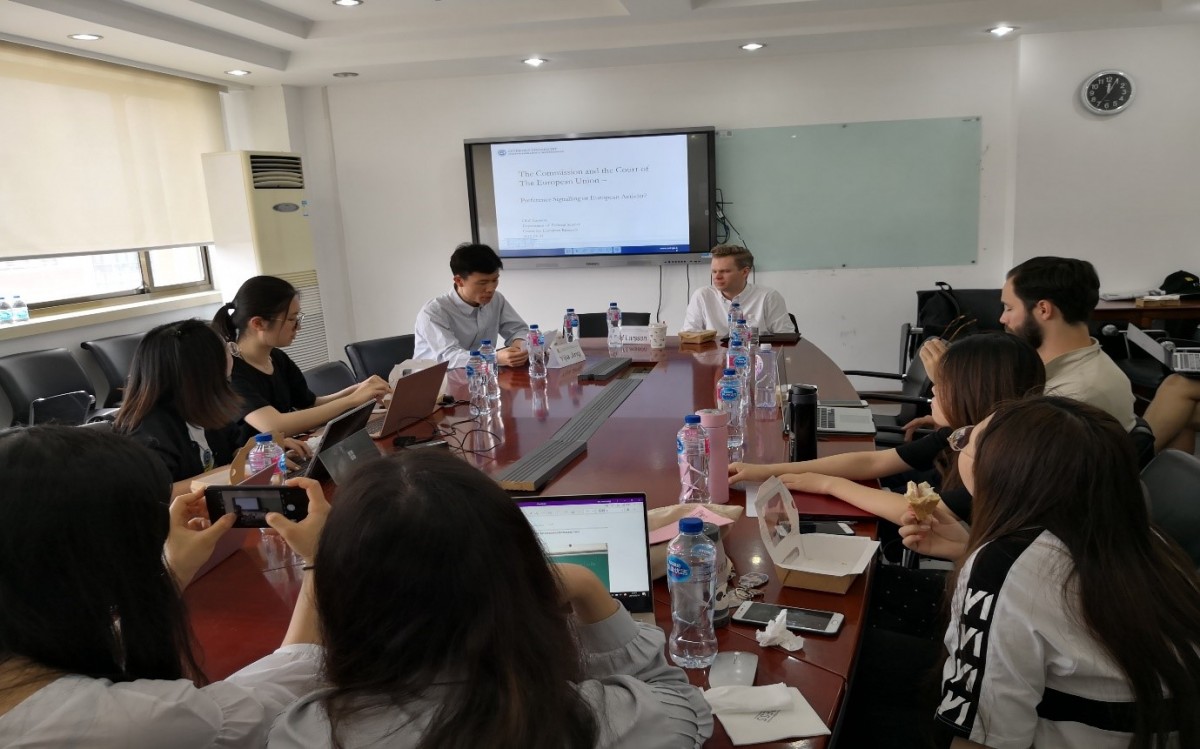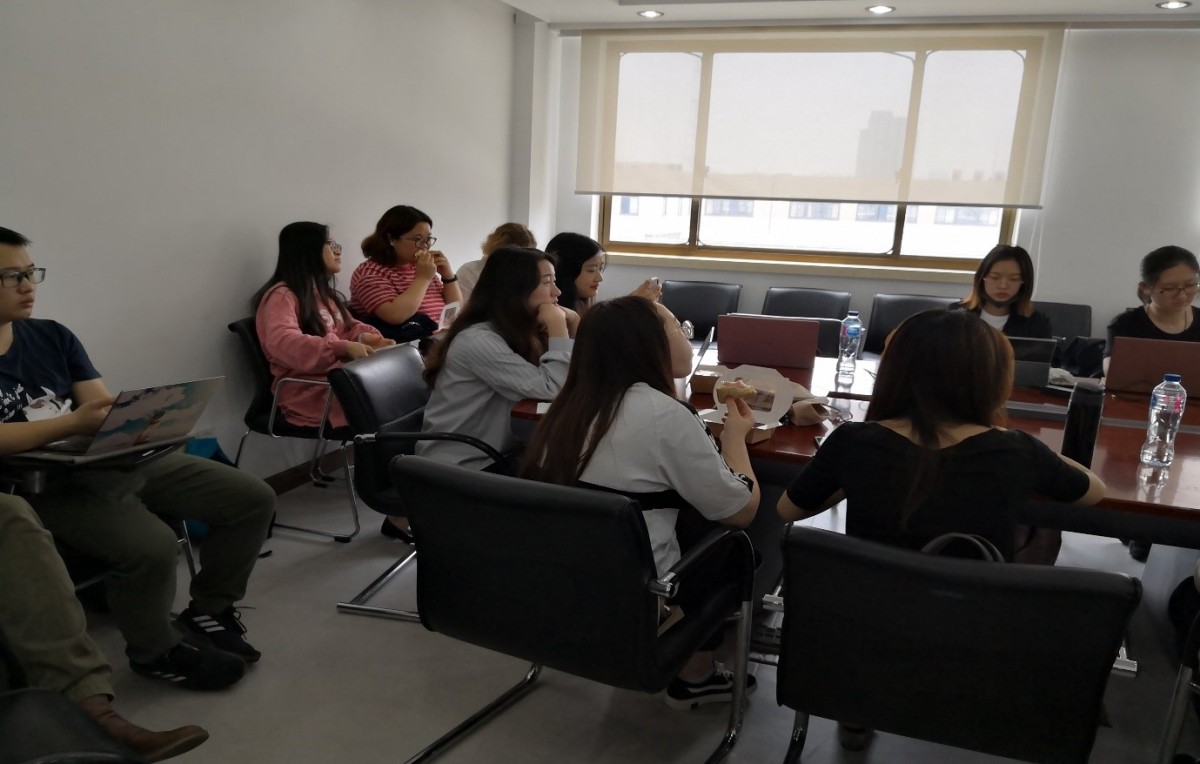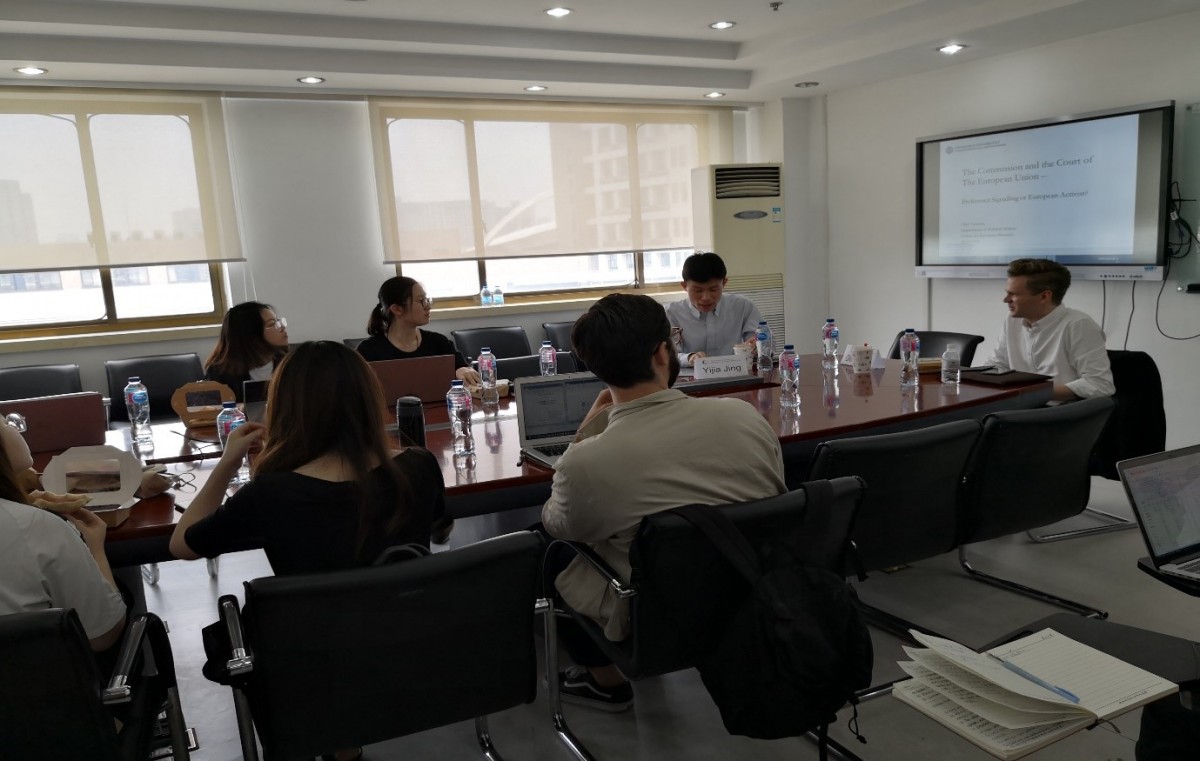SIRPA at Fudan/China [Fudan/China] Special Lecture #24 (31/05/2019)
페이지 정보

본문
|
Title
|
The Commission and the Court of the European Union: Preference Signaling or European Activist? |
|
Speaker
|
Olof Larsson |
|
Dates
|
May 31, 2019 |
|
Venue
|
Room 2801, Wenke Building |
|
Number of
Direct Participants
(researchers and students from your institution)
|
19 |
|
Number of
Indirect Participants
(other audiences like media or residents in your region)
|
0 |
|
Outlines
(up to 5 points)
|
l 1.What does the EU actually do? The EU is primarily a regulatory organization, shaping Europe societies through its rules and laws.
l 2.How are rules decided? The different roles of the commission, the European Parliament, the council and the court of justice.
l 3. What rules can be adopted? What the EU can do is decided by the treaties. Each EU law has to based on specific articles of the treaties.
l 4. Compliance. Problems with compliance were foreseen from the start. Decentralized monitoring system requires less resources, but facour those who can afford long court proceedings.
l 5. Influence does not mean dominance or control. The commission and the member states do not totally control the court, which has made many radical decisions against the wishes of a majority of member states.
|
- 다음글[Fudan/China] Special Lecture #23 (30/04/2019) 19.07.01
댓글목록
등록된 댓글이 없습니다.









